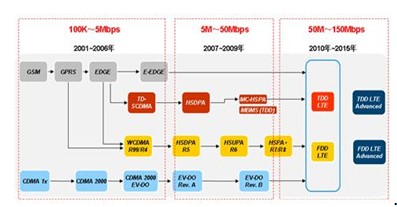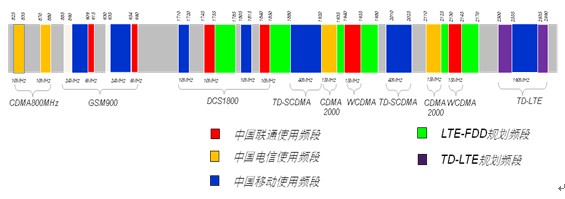
Privacy statement: Your privacy is very important to Us. Our company promises not to disclose your personal information to any external company with out your explicit permission.
With the continuous development of modern communication technology, mobile communication has entered the LTE era. As of press time, 152 LTE networks have been deployed worldwide, and it is expected to reach more than 300 in 2014. Many mobile operators will face 2G networks such as GSM and CDMA. The 3G networks such as WCDMA, CDMA2000 and TDS-CDMA and the network convergence networks such as TD-LTE and LTE-FDD will cover different frequency bands and have tight space resources. Inter-system interference, smooth transition of network technology, and many other issues. Mobi antenna, which is committed to becoming a partner of the global mobile operator's antenna feeder solution, has officially released the LTE fusion networking antenna series products and solutions to help mobile network operators effectively solve the above problems.

Figure 1: Mobile network technology development roadmap
LTE Converged Network Antenna Series
The LTE fused networking antenna products are classified into a beamforming LTE fused networking antenna series and a MIMO LTE fused networking antenna series according to different technologies used in the LTE network standard.

Figure 2: Mobi LTE Fusion Network Antenna Product Family
Key technologies and product features of LTE fusion networking antenna:
Broadband
Broadband has always been one of the important development trends of antenna technology, especially for LTE convergence networking. This is because the spectrum allocated to LTE networks in different countries and regions is different. In addition, operators operating 2G, 3G, LTE and other networks will also obtain a series of discrete spectrum combinations. Under this premise, the broadband network design of the converged networking antenna will maximize the flexibility of network deployment, reduce the difficulty of antenna selection, reduce the number of purchased models, reduce the antenna inventory, and prepare for the smooth transition transition.

Figure 3: Spectrum distribution of China Mobile Network Operators
2. Intelligent
Smart antenna technology is one of the key technologies of LTE network. By applying smart antenna technology such as MIMO and beamforming, system robustness can be effectively improved, spectrum efficiency can be improved, interference can be suppressed, and network throughput can be improved. Mobi LTE Fusion Network Antenna products support smart antenna technology such as MIMO and beamforming to provide stable and reliable support for high-speed wireless network connections.
3. Independent ESC
In the multi-network common antenna feed deployment process, due to different wireless transmission performance of different frequency bands, it will bring great difficulty to network design and network optimization. For example, under the same transmit power and the same antenna downtilt condition, the average level of the outdoor 2.1 GHz band and the 2.6 GHz band are about 2 dB, and the indoor level average difference is about 5 dB. When the antenna is built, the optimal downtilt angle of the 2.1 GHz band and the optimal downtilt angle of the 2.6 GHz band are about 2 degrees. If the same downtilt setting is used, the network performance will drop dramatically. Therefore, in the LTE fusion networking process, independent adjustment of the downtilt angle of each frequency band is particularly important.
4. Informationization
With the large-scale deployment of electronically modulated antennas, beam-forming antennas, and the gradual application of centralized network management technologies, the informationization of base station antennas has received increasing attention. If the antenna configuration information such as the antenna sector, the electronic downtilt range, the electronic downtilt angle, and the beamforming weight are not properly and efficiently managed, the network coverage will be deteriorated. The Mobi antenna information storage solution pre-stores the configuration information of the LTE fusion networking antenna in the antenna, and automatically reads the configuration information of the corresponding antenna through the base station device during the site configuration, thereby realizing automatic configuration and management of the antenna, which greatly reduces the configuration. The complexity of site configuration avoids the possibility of manual setting errors and will play an important role in improving network performance, improving efficiency, and reducing maintenance costs.
January 17, 2025
January 11, 2025
September 18, 2023
June 28, 2024
June 28, 2024
December 10, 2024
この仕入先にメール
January 17, 2025
January 11, 2025
September 18, 2023
June 28, 2024
June 28, 2024
December 10, 2024

Privacy statement: Your privacy is very important to Us. Our company promises not to disclose your personal information to any external company with out your explicit permission.

Fill in more information so that we can get in touch with you faster
Privacy statement: Your privacy is very important to Us. Our company promises not to disclose your personal information to any external company with out your explicit permission.